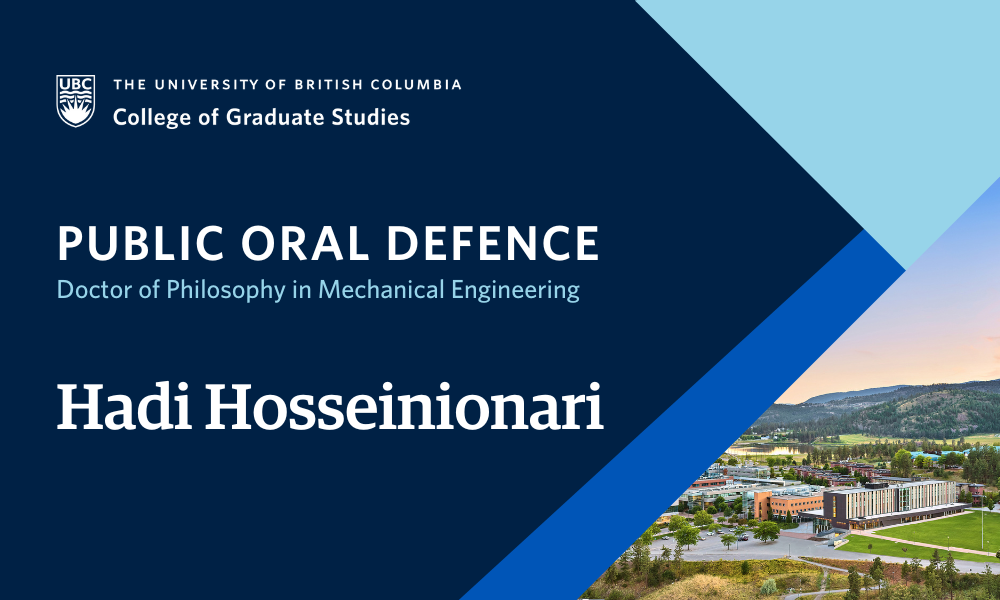
- This event has passed.
Dissertation Defence: Physics-based Simulation and Reinforcement Learning Control of Heating Phase in Thermoforming Process
July 12, 2024 at 10:30 am - 2:30 pm

Hadi Hosseinionari, supervised by Dr. Rudolf Seethaler, will defend their dissertation titled “Physics-based Simulation and Reinforcement Learning Control of Heating Phase in Thermoforming Process” in partial fulfillment of the requirements for the degree of Doctor of Philosophy in Mechanical Engineering.
An abstract for Hadi Hosseinionari’s dissertation is included below.
Examinations are open to all members of the campus community as well as the general public. Registration is not required for in-person defences.
ABSTRACT
The importance of thermoforming in manufacturing has increased due to the growing demand for plastic products across various industries. The large-scale production of thermoformed parts has necessitated the development of precise and cost-effective process controllers. The thermoforming industry lags behind manufacturing processes, like injection moulding, regarding automation, control, and process understanding. As such, the thermoforming industry is currently facing the critical task of increasing its degree of process control. The thermoforming process consists of two primary phases: the heating phase and the vacuum and cooling phase. The heating phase stands out as the most critical step, as the outcomes of the subsequent phase hinge on its effectiveness. Despite the development of control techniques for the heating phase of the process, oven heater temperatures in the thermoforming industry are still mostly regulated by experienced operators using trial and error. The designed control algorithm for the heating phase in thermoforming must be easy to implement, cost-effective, robust to environmental disturbances, and should minimize control time to maximize production efficiency. To bridge these existing gaps, the first objective of this thesis is to develop a precise and computationally efficient model for the heating phase in thermoforming. This 2D model, by utilizing the experimental radiation pattern, achieves a level of accuracy comparable to a 3D model while maintaining the computational efficiency characteristic of a 2D model. The complexity of this model makes it difficult for traditional controller development. Thus, it is used to collect data for data-driven methods or to train various reinforcement learning (RL) control approaches. The controller is strategically designed and trained based on the system’s input and output instead of facing the complexities of solving mathematical equations involved in the heating phase model, which includes radiation heat transfer and actuators’ dynamics. Because it uses robust search algorithms, RL is especially effective at optimizing controllers in systems with highly uncertain, possibly stochastic, or nonlinear dynamics. They are compared to PI and Model Predictive Control (MPC), an advanced model-based process control technique to Benchmark the effectiveness of the developed RL control strategies.